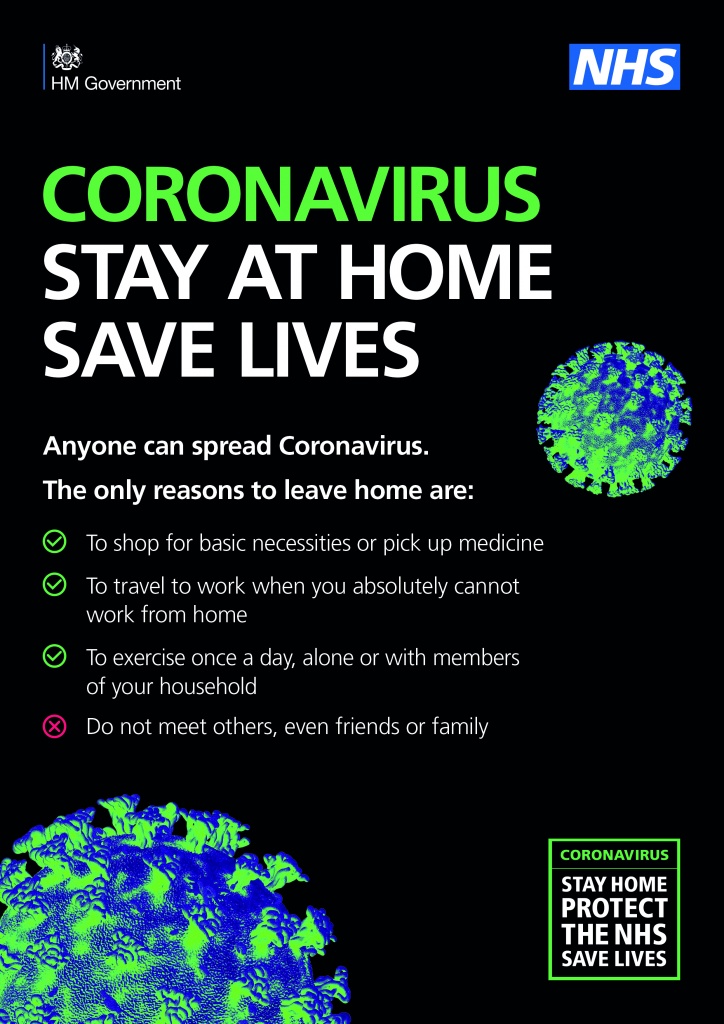
| Chancellor Rishi Sunak has announced a scheme to support the UK’s self-employed affected by the coronavirus outbreak. Direct cash grant of 80% of their profits, up to £2,500 per month in an unprecedented package of Government support to protect businesses and individuals will be made straight into their bank account by HMRC. Cleaners, plumbers, electricians, musicians, hairdressers and many other self-employed people who are eligible for the new scheme will be able to apply directly to HMRC for the taxable grant, using a simple online form, with the cash being paid directly into people’s bank account. |
Millions of self-employed individuals will receive direct cash grants though a ground-breaking UK-wide scheme to help them during the coronavirus outbreak, the Chancellor announced today. In the latest step to protect individuals and businesses, Rishi Sunak has set out plans that will see the self-employed receive up to £2,500 per month in grants for at least 3 months. Millions of people across the UK could benefit from the new Self-Employed Income Support Scheme, with those eligible receiving a cash grant worth 80% of their average monthly trading profit over the last three years. This covers 95% of people who receive the majority of their income from self-employment. This brings parity with the Coronavirus Job Retention Scheme, announced by the Chancellor last week, where the Government committed to pay up to £2,500 each month in wages of employed workers who are furloughed during the outbreak. Cleaners, plumbers, electricians, musicians, hairdressers and many other self-employed people who are eligible for the new scheme will be able to apply directly to HMRC for the taxable grant, using a simple online form, with the cash being paid directly into people’s bank account. Chancellor Rishi Sunak said: “Self-employed people are a crucial part of the UK’s workforce who’ve understandably been looking for reassurance and support during this national emergency. “The package for the self-employed I’ve outlined today is one of the most generous in the world that has been announced so far. It targets support to those who need help most, offering the self-employed the same level of support as those in work. “Together with support packages for businesses and for workers, I am confident we now have the measures in place to ensure we can get through this emergency together.” The scheme will be open to those with a trading profit of less than £50,000 in 2018-19 or an average trading profit of less than £50,000 from 2016-17, 2017-18 and 2018-19. To qualify, more than half of their income in these periods must come from self-employment. To minimise fraud, only those who are already in self-employment and meet the above conditions will be eligible to apply. HMRC will identify eligible taxpayers and contact them directly with guidance on how to apply. The income support scheme, which is being designed by HMRC from scratch, will cover the three months to May. Grants will be paid in a single lump sum instalment covering all 3 months, and will start to be paid at the beginning of June. Individuals should not contact HMRC now. HMRC will use existing information to check potential eligibility and invite applications once the scheme is operational. Those who pay themselves a salary and dividends through their own company are not covered by the scheme but will be covered for their salary by the Coronavirus Job Retention Scheme if they are operating PAYE schemes. The scheme has been designed after extensive engagement with stakeholders including the TUC, the Federation of Small Businesses and IPSE – The Association of Independent Professionals and the Self-Employed. Self-employed individuals are already benefitting from a series of measures announced by the Chancellor to boost household incomes and will be able to access these while the new scheme is being rolled out. These include a strengthening of the welfare safety-net with a £7 billion boost to Universal Credit, income tax and VAT deferrals, £1 billion more support for renters and access to three-month mortgage holidays. Examples of the way these will affect self-employed individuals are as follow: Ben is a full-time self-employed florist. Ben had average trading profits of £18,000 in the 3 years from 2016-17 – 2018/19. Under the Self-Employed Income Support Scheme, Ben will be eligible for a grant of £1,200 per month. Assuming activity is channelled through a business account, Ben may be eligible to receive a loan from an accredited CBILS lender of up to £5 million supported by the Coronavirus Business Interruption Loan Scheme, with government covering the first 12 months of interest payments. Nicole is a self-employed London taxi driver. Nicole had average trading profits of £30,000 in the 3 years from 2016-17 – 2018/19. Under the Self-Employed Income Support Scheme, Nicole will be eligible for a grant of £2,000 per month. Assuming activity is channelled through a business account, Nicole may be eligible to receive a loan from an accredited CBILS lender of up to £5 million supported by the Coronavirus Business Interruption Loan Scheme, with government covering the first 12 months of interest payments. |
Further information and details of the scheme will be shared shortly by HMRC.HMRC will use the average trading profits from tax returns in 2016-17, 2017-18 and 2018-19 to determine the size of the grant. This scheme also applies to members of partnerships.Before grant payments are made, the self-employed will still be able to access other available Government support for those affected by coronavirus including more generous universal credit and business continuity loans where they have a business bank account. |
Kindly follow us on twitter:@AfricanVoice2









